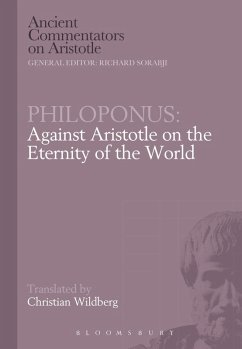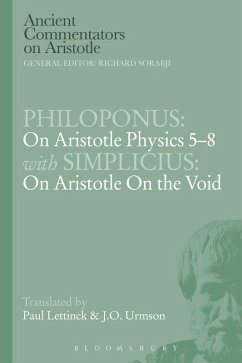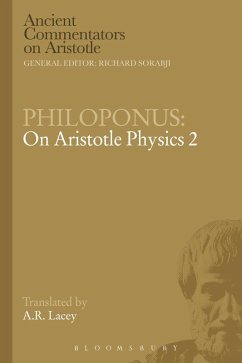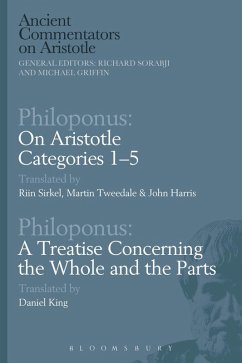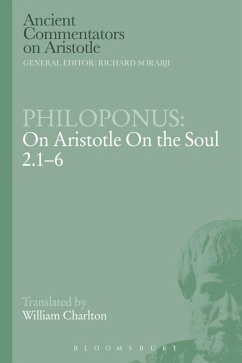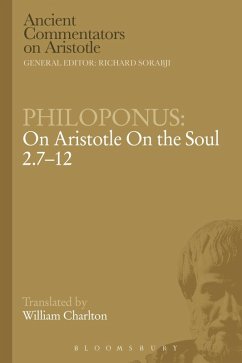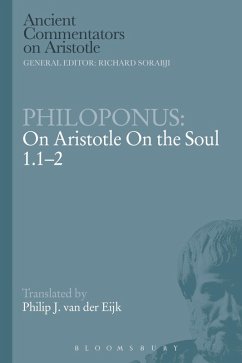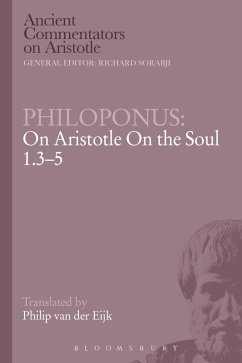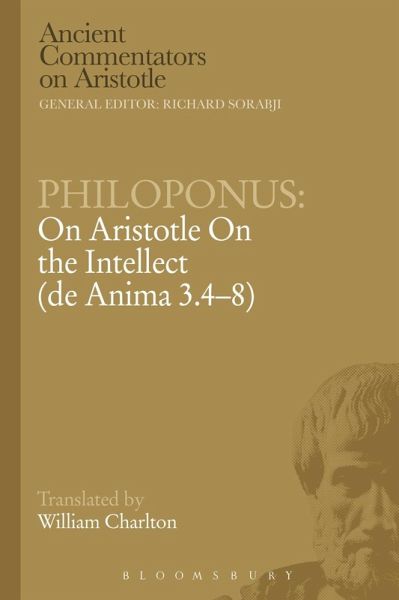
Philoponus: On Aristotle On the Intellect (de Anima 3.4-8) (eBook, PDF)
Versandkostenfrei!
Sofort per Download lieferbar
31,95 €
inkl. MwSt.
Weitere Ausgaben:

PAYBACK Punkte
16 °P sammeln!
In his commentary on a portion of Aristotle's de Anima (On the Soul) known as de Intellectu (On the Intellect), Philoponus drew on both Christian and Neoplatonic traditions as he reinterpreted Aristotle's views on such key questions as the immortality of the soul, the role of images in thought, the character of sense perception and the presence within the soul of universals. Although it is one of the richest and most interesting of the ancient works on Aristotle, Philoponus' commentary has survived only in William of Moerbeke's thirteenth-century Latin translation from a partly indecipherable ...
In his commentary on a portion of Aristotle's de Anima (On the Soul) known as de Intellectu (On the Intellect), Philoponus drew on both Christian and Neoplatonic traditions as he reinterpreted Aristotle's views on such key questions as the immortality of the soul, the role of images in thought, the character of sense perception and the presence within the soul of universals.
Although it is one of the richest and most interesting of the ancient works on Aristotle, Philoponus' commentary has survived only in William of Moerbeke's thirteenth-century Latin translation from a partly indecipherable Greek manuscript. The present version, the first translation into English, is based upon William Charlton's penetrating scholarly analysis of Moerbeke's text.
Although it is one of the richest and most interesting of the ancient works on Aristotle, Philoponus' commentary has survived only in William of Moerbeke's thirteenth-century Latin translation from a partly indecipherable Greek manuscript. The present version, the first translation into English, is based upon William Charlton's penetrating scholarly analysis of Moerbeke's text.




